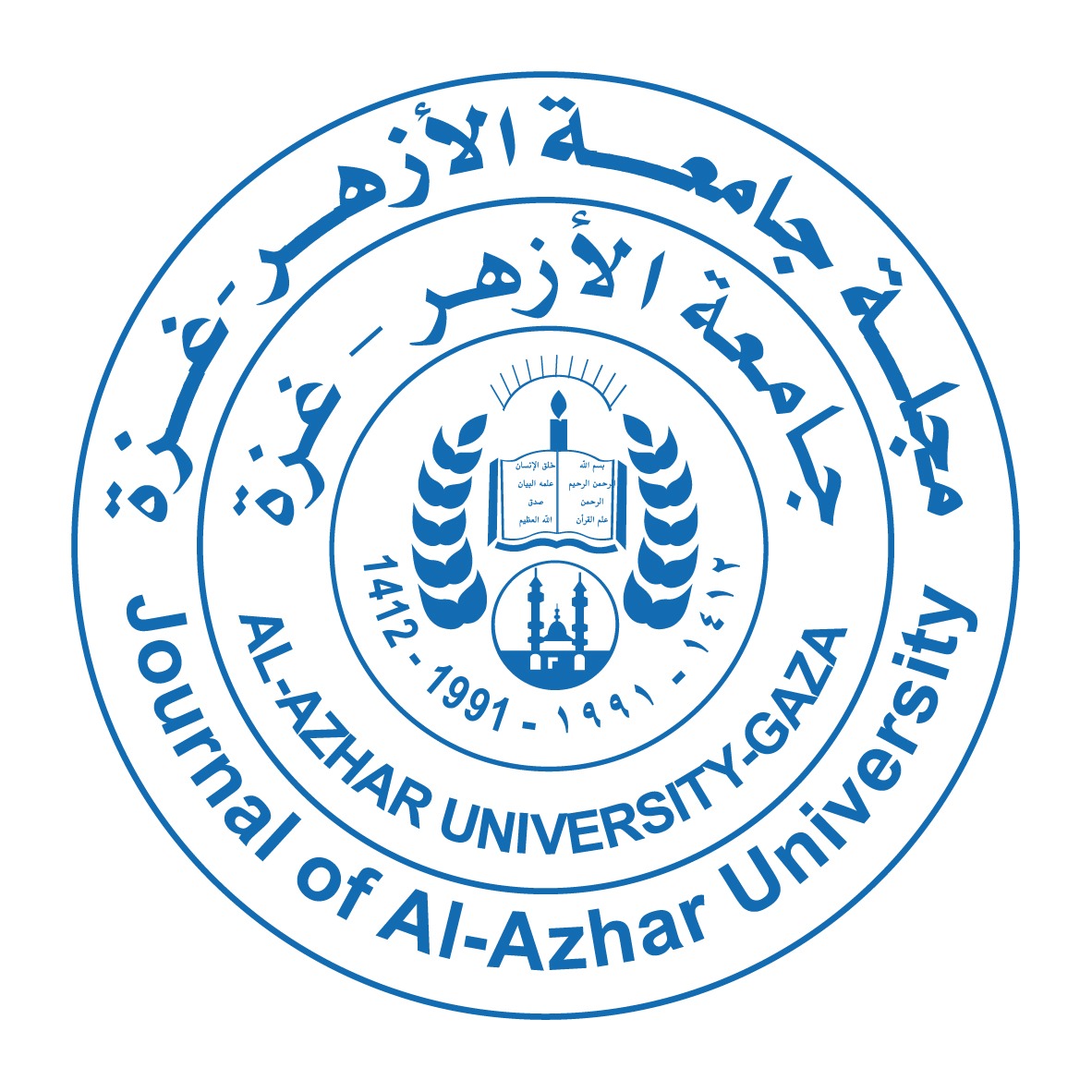Journal of Al-Azhar University – Gaza (Humanities)

Abstract
ملخص:
هدفت الدراسة الحالية إلى تقصي أثر برنامج تدريبي قائم على استراتيجية التعلم المستند إلى مشكلة في مواقف حياتية على تنمية عادات العقل التي يختص بها الجانب الأيمن من الدماغ عند طلبة التاسع الأساسي، وتكونت عينة الدراسة من (153) طالباً وطالبة من مدرسة الطيبة الإعدادية الأولى للذكور والإناث التابعة لمنطقة جنوب عمّان التعليمية التابعة لوكالة الغوث الدولية، تم توزيعهم بطريقة عشوائية على مجموعتين: التجريبية من(37) طالباً و(43) طالبة، والضابطة من (41) طالباً و( 32) طالبة. ولأغراض الدراسة تم إعداد مقياس لتسع عادات عقل يختص بها الجانب الأيمن من الدماغ، وقد تمتع المقياس بالصدق ومعاملات الثبات المقبولة، حيث استخدم المقياس كإجراء قياس قبلي وبعدي، كما أُستخدم البرنامج التدريبي للمجموعة التجريبية، استغرق تطبيقه ثلاثة شهور تقريباً بواقع (27) حصة. وبعد الانتهاء من تطبيق البرنامج تم تطبيق القياس البعدي للمجموعتين ، التجريبية والضابطة، ومن أجل تحليل نتائج الدراسة أُستخدم تحليل التباين الثنائي المشترك (Two Way ANOVA) ، وتوصلت الدراسة إلى وجود دلالة إحصائية لصالح المجموعة التجريبية على مقياس عادات العقل الكلي والمقاييس الفرعية، وعدم وجود فروق دالة بين أداء الذكور والإناث في المجموعة التجريبية.
الكلمات المفتاحية : التعلم المستند إلى مشكلة ، عادات العقل.
Abstract:
This study aimed at investigating the impact of a training program based on a problem-based learning strategy in life situations on the development habits of mind in the right side of the brain at the ninth grade students. The sample of the study consisted of (153) students from the first Taiba Preparatory School for males and females of the South Amman Educational strip of (UNRWA), randomly divided to the two groups; the experimental group consisted of (37) male students, (43) female students, and the control of (41) male students and (32) female students. For the purposes of the study, a scale of nine Habits of mind was developed for the right side of the brain, the validity and reliability has been verified. The scale was used as a pre and post measurement scale. After the implementation of the program, the post-measurement of the two groups, experimental and control, was applied. In order to analyze the results of the study, two-way ANOVA was used. The study showed that there is differences between experimental and control groups in favor of experimental group in the means of habits of. Also for all sub skills of the habits of mind, except the finding humor habit mind.
Keywords: problem-based learning, habits of mind.
Recommended Citation
Aburayash, hussain mohammad
(2017)
"أثر برنامج تدريبي قائم على استراتيجية التعلم المستند إلى مشكلة في مواقف حياتية على تنمية عادات العقل التي يختص بها الجانب الأيمن من الدماغ,"
Journal of Al-Azhar University – Gaza (Humanities): Vol. 19:
Iss.
2, Article 1.
Available at:
https://digitalcommons.aaru.edu.jo/alazhar/vol19/iss2/1

